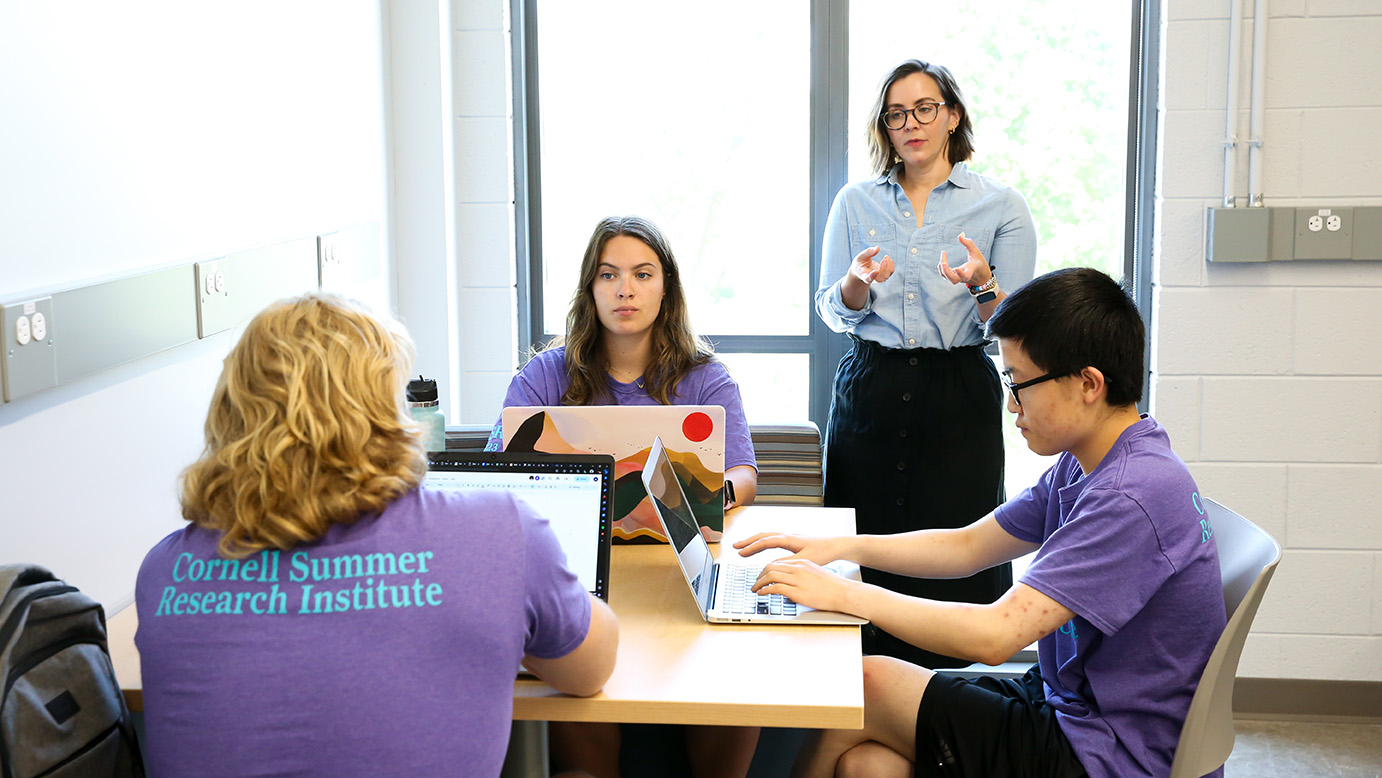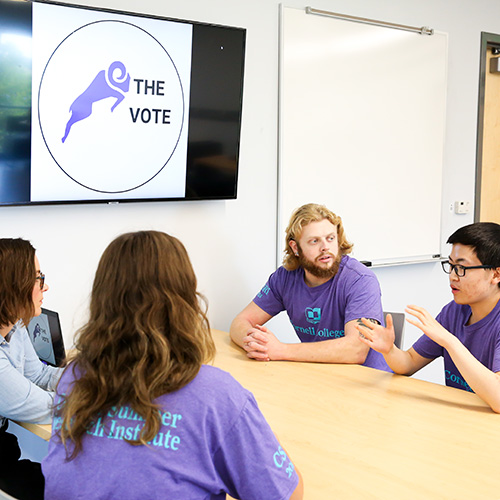Politics Major and Minors
The study of politics and our government
It’s through politics that major society-changing decisions are made, governments are organized, and ideas and values are expressed and acted upon. How you perceive liberty, equality, justice, democracy, and the rule of law influences how you see governance. The study of politics is also a study of biology, psychology, sociology, economics, philosophy, history, and literature because the study of politics is essentially the study of humanity. As such, politics faculty and students are as diverse as the world we live in with different modes of inquiry, interests, and conceptions of what is important in the world of politics. As a politics student, be ready to embrace and appreciate the liberal arts method of education and diversity of perspective.
One Course At A Time gives you several hours of uninterrupted time each day to explore topics in depth and make use of a wide range of learning activities. You’ll have time to watch and discuss documentary and feature films. Participate in role-playing simulations that extend for multiple days. For example, Campaigns and Elections devotes 20 hours to a single simulation, On the Campaign Trail, that allows student teams to organize and manage competing campaigns. Students in International Politics spend several sessions on a diplomatic simulation of pre-World War I Europe. The International Organizations course includes a United Nations Security Council role-playing simulation that involves responding to a contemporary crisis.
Cornell Summer Research Institute: increasing youth voter turnout at Cornell
There’s no shortage of research opportunities available for students at Cornell. Have a burning question you want to answer? This is the place! Recent politics students wanted to investigate how better to encourage other Cornellians to vote. Like these students, your research interests could make an impact. What will you do?

Politics courses and degree requirements
If you know you want to study politics but aren't sure which degree option is the best fit for you, that's not a problem. You can work with faculty, your academic advisor, and the career coaches at the Berry Career Institute to determine your terminal degree. Cornell students choose from a variety of options, including a single major, a double major, or a major with a minor. That can all be worked out once you've been on campus and spent some time exploring your options.
Bachelor of Arts (B.A.)
If you have an interest in politics, you could earn your B.A. with one or some combination of majors and minors:
- Major in politics
- Minor in political thought
- Minor in American politics and public policy
Bachelor in Special Studies (B.S.S.)
Or you could create your own individualized degree. A B.S.S. gives you the opportunity to design your own degree. Often, but not always, a B.S.S. is an interdisciplinary field of study that you develop with the advice of your academic advisor. You might decide to be an international political economy major, a human rights major, or something entirely unique to your career goals.
Capstone in politics
As you near the end of your study of politics at Cornell, you will choose a topic within politics for your capstone experience. You will explore this topic through group discussion and peer review, presentations, and a paper that critically reviews existing research to advance an argument.
Off-campus studies opportunities in politics
Go on block-long off-campus courses such as Wilderness Politics (Northern Minnesota) and Women and Politics in India. Courses in comparative politics have been taught in China, Nicaragua, Brazil, India, Germany, the Czech Republic, Poland, Bosnia, and Herzegovina. You might take in-class field trips to nearby aor far-away places. Ethics and Public Policy students have routinely traveled to national and state capitals for periods of a few days to a week or more.
Internships for politics students
One Course At A Time makes it easy for you to schedule an internship for credit in places like Washington, D.C. And because you can intern at multiple points throughout the year, you have less competition for meaningful work, allowing better and more interesting placements. As a result, graduates build worthwhile and influential relationships before they graduate.
There are six Cornell competitive internships directly related to politics. Through the Cornell internships, top students routinely work for the office of U.S. Sen. Charles Grassley, U.S. Rep. David Loebsack, Global Zero, the Civil Rights Commission, and a fellowship related to sustainable agriculture in India.
What are Cornell students doing in internships? Check out their blogs.
Career opportunities in politics
The average salary for a politics graduate is $79,000 according to PayScale.com. For the graduates that go on to earn a master's degree, the average salary for a political scientist is $139,930 according to the Bureau of Labor Statistics. Our graduates leave with strong analytical skills and often with experience in conducting research or having held an internship, which gives them an edge in the workforce.
Our alums work as:
- Non-profit fellows
- Healthcare organizers
- Field directors
- Field associates
- Entrepreneurs
- AmeriCorps workers
- Government analysts
The Berry Career Institute can help you identify what you'll pursue with your knowledge of politics and political systems.

